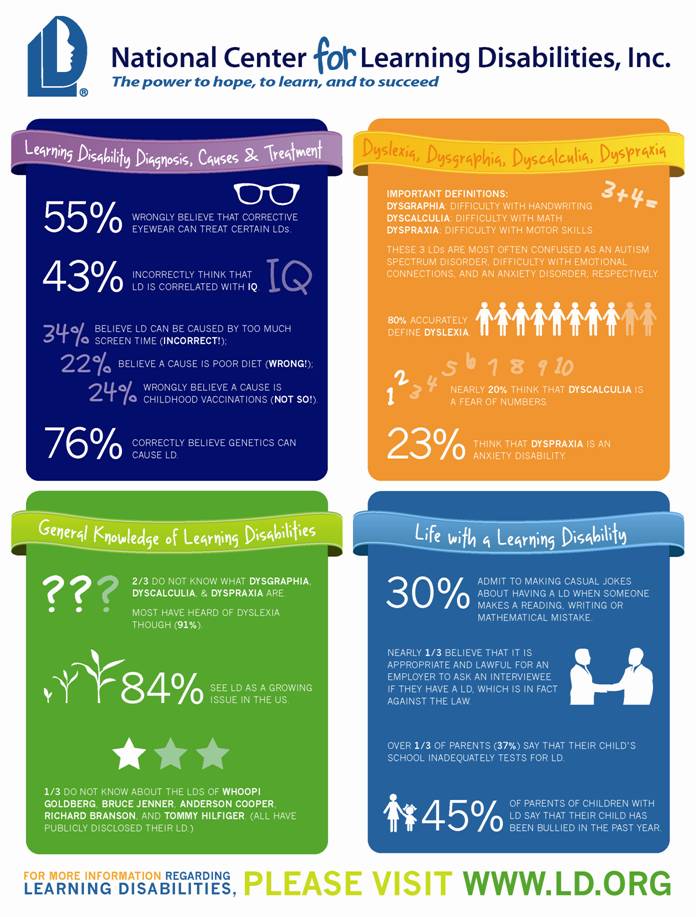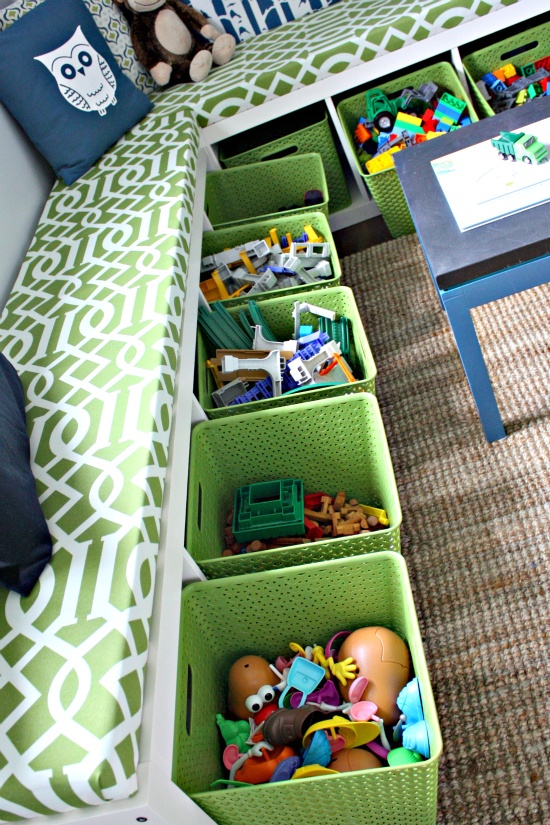
The National Center for Learning Disabilities Helps Provide Resources
According to the National Center for Learning Disabilities the first six weeks of the school year are the most critical to identify potential learning challenges. One of the best places to start is to ask your pediatrician if you are having concerns about your child’s challenges as early detection makes all the difference according to the National Center for Learning Disabilities.
The National Center for Learning Disabilities:
The NCLD has been around since 1977 and is the largest organization in the United States that provides information for parents and children with learning disabilities. They have worked for over three decades from Capitol Hill to the classroom to provide support to the 15 million Americans with learning disabilities. Their site provides resources, guidance and support for parents so they in turn can advocate effectively for their children. (Source: www.ncld.org).
What is a Learning Disability?
A learning disability is more than a difference or difficulty with learning – it’s a neurological disorder that affects the brain’s ability to receive, process, store, and respond to information according to the NCLD. Learning disabilities present in various ways and affects each person differently. By understanding the basic signs helps you to help your child or even yourself and become a well-informed advocate.
NCLD Director Sheldon Horowitz:
I had a chance to speak to Sheldon Horowitz, Ed., Director of LD resources and essential information at the National Center for Learning Disabilities (NCLD). He to explained to me that “learning disabilities affect many kids and their families. There are kids are are stuggling with reading, math, etc., and it is important for the parents to learn what steps to take in order for their children to achieve their potential.” He said it is important that parents become “consumers of information” so they can provide support and encouragement. “Having a learning disability is not a prescription for failure” he notes, but he says that “children can get frustrated and spend their hours in school anxious as their disability is affecting the way they feel about themselves.” Mr. Horowitz doesn’t want to see this happen and says there are steps the parent and teacher can make to ensure the child is getting the help they need. Some of the NCLD recommendations include setting up an effective Individualized Education Plan (IEP) for your child, set goals, checklists, and watch the child’s progression are positive steps in the right direction.
A “Learning Check-Up” Checklist:
Dr. Jennifer Trachtenberg, MD has created a “learning check-up” checklist that parents can use with their pediatrician. Dr. Trachtenberg is a board-certified pediatrician at The Mount Sinai Medical Center, a Fellow of the American Academy of Pediatrics, and a mom of two children who has practiced pediatric medicine for more than 14 years. (Source: NCLD Press Release).
1. Don’t Wait: While early warning signs of learning disabilities can be identified in children as young as 3 to 4 years of age according to the National Center for Learning Disabilities (LD.org), it isn’t until third grade that their disabilities are usually recognized. Parents can go to the NCLD website and look at their Interactive LD Checklist if they are unsure of the signs.
2. Write It Down: Keep a written record of any observations and back-to-school meetings so when you go to your annual pediatrician appointment you will have examples to share with your child’s doctor.
3. Come Prepared: The more information you can provide your pediatrician the better. Bring samples of schoolwork, report cards if available and notes from parent-teacher meetings.
4. Be Assertive: It’s within reason to ask your pediatrician to write a letter or join in a phone call with the teacher, the school psychologist or other personnel. Don’t be afraid to speak up and ensure that clear and actionable steps are set up for your child. LD.org’s Resource Location Tool connects parents with thousands of local, state, and national resources for specialist referrals, support groups and LD-related information.
For more information about The National Center for Learning Disabilities and their resources go to: www.ncld.org.
References:
The National Center for Learning Disabilities website: www.ncld.org and Press Release
Interview with Sheldon Horowitz, Ed., Director of LD resources and essential information at the National Center for Learning Disabilities (NCLD).
The National Center for Learning Disabilities released a new survey last month that revealed that Americans lack basic understanding of learning disabilities. See above for their findings.
0



